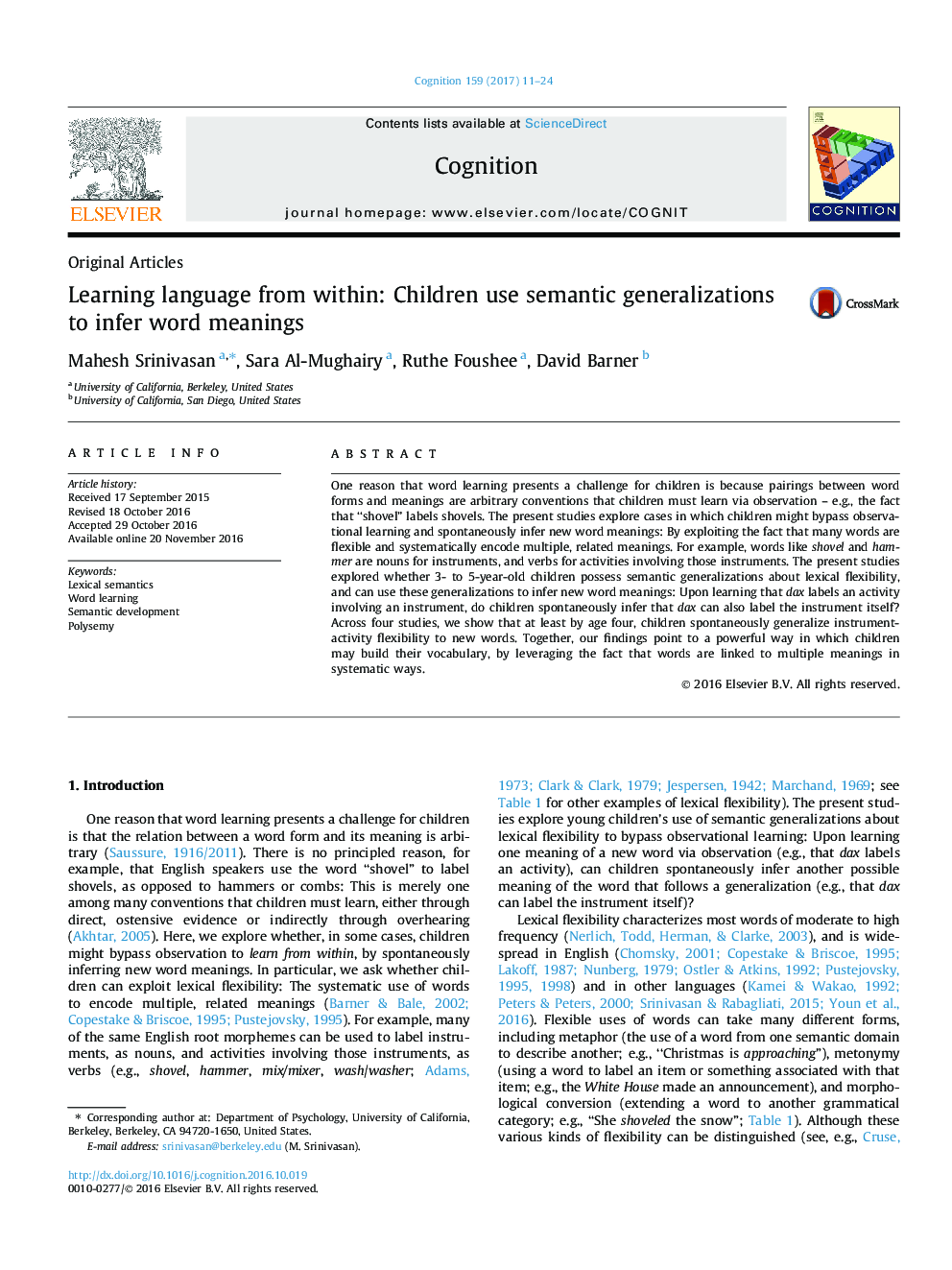| کد مقاله | کد نشریه | سال انتشار | مقاله انگلیسی | نسخه تمام متن |
|---|---|---|---|---|
| 5041639 | 1474108 | 2017 | 14 صفحه PDF | دانلود رایگان |
One reason that word learning presents a challenge for children is because pairings between word forms and meanings are arbitrary conventions that children must learn via observation - e.g., the fact that “shovel” labels shovels. The present studies explore cases in which children might bypass observational learning and spontaneously infer new word meanings: By exploiting the fact that many words are flexible and systematically encode multiple, related meanings. For example, words like shovel and hammer are nouns for instruments, and verbs for activities involving those instruments. The present studies explored whether 3- to 5-year-old children possess semantic generalizations about lexical flexibility, and can use these generalizations to infer new word meanings: Upon learning that dax labels an activity involving an instrument, do children spontaneously infer that dax can also label the instrument itself? Across four studies, we show that at least by age four, children spontaneously generalize instrument-activity flexibility to new words. Together, our findings point to a powerful way in which children may build their vocabulary, by leveraging the fact that words are linked to multiple meanings in systematic ways.
Journal: Cognition - Volume 159, February 2017, Pages 11-24
